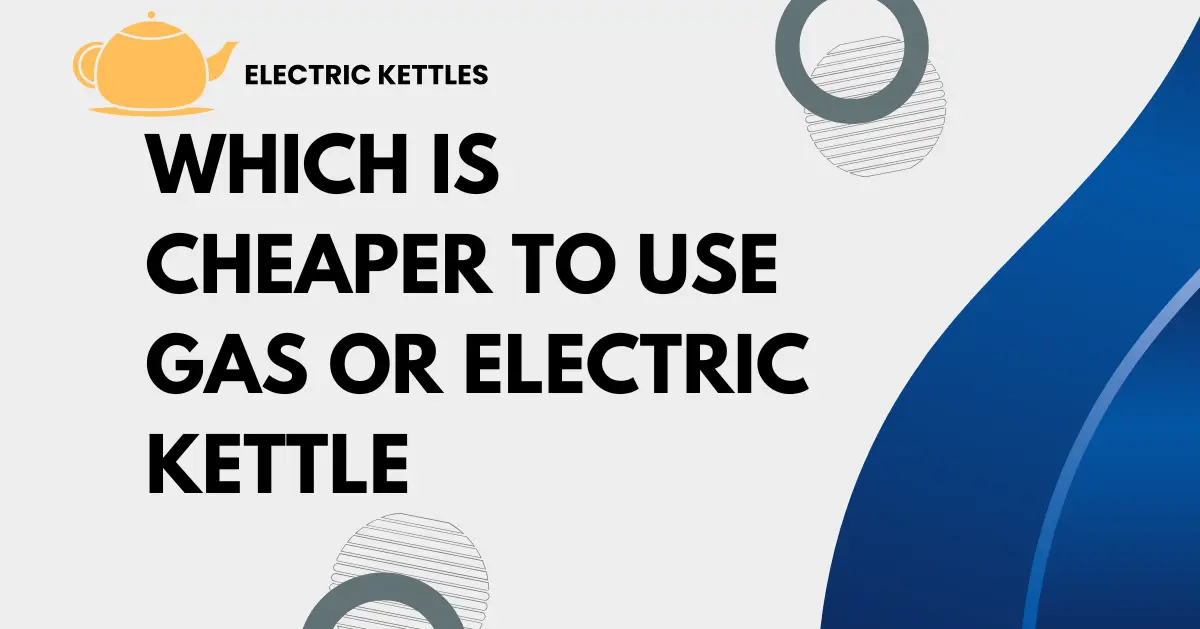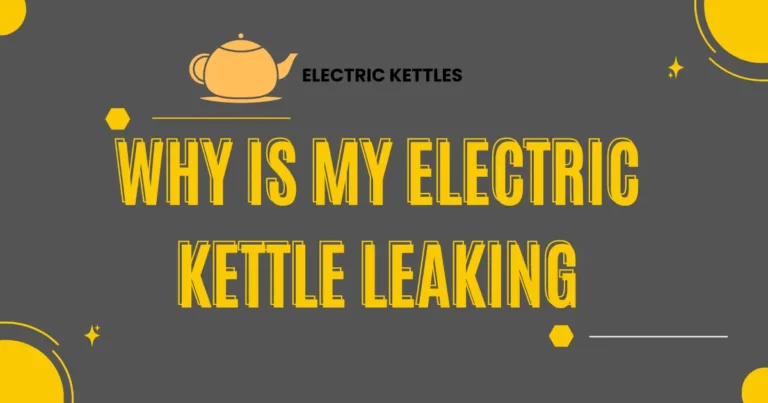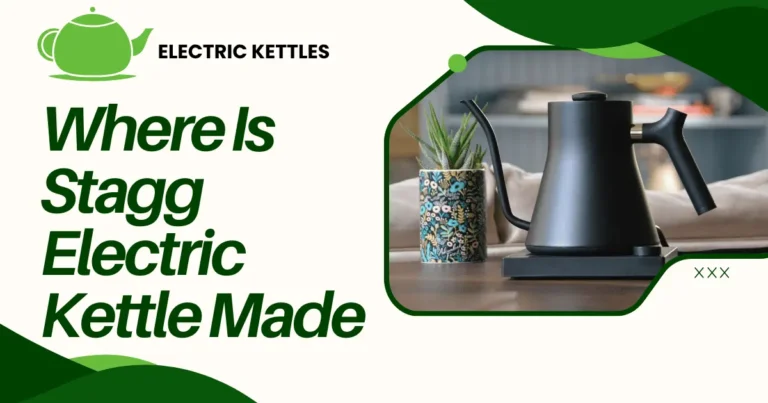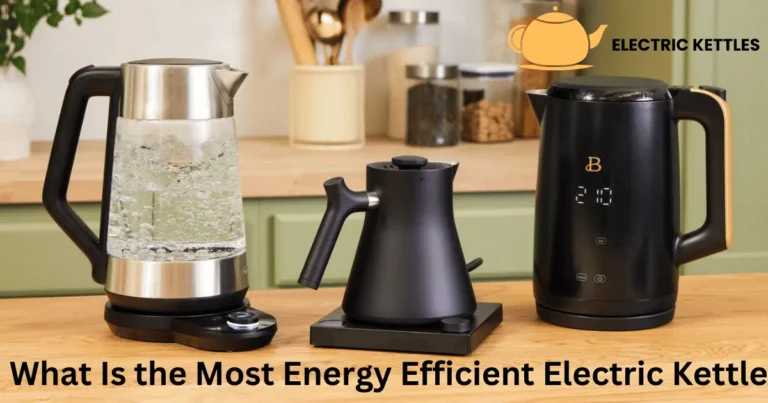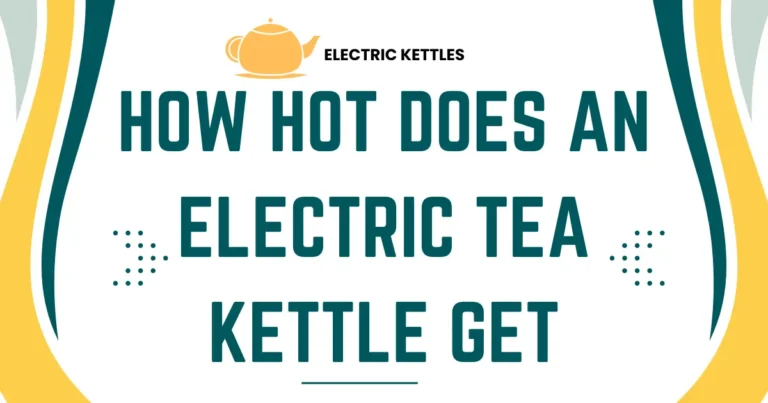Which Is Cheaper to Use Gas or Electric Kettle
The debate between gas and electric kettles centers on cost, efficiency, and convenience. Many people wonder which type is cheaper to use. Gas kettles often heat water faster because they use an open flame. However, electric kettles are usually more energy-efficient, meaning they can save money over time. The choice can also depend on local energy prices.
Each kettle type has its fans. Some prefer gas for its quick heating and traditional feel. Others choose electric kettles for their ease of use and safety features. Electric kettles often have automatic shut-off functions, which can prevent accidents. Ultimately, the best choice depends on personal preferences, kitchen setup, and budget.
Cost Comparison
When comparing the costs of gas and electric kettles, it’s important to consider both the initial purchase prices and ongoing operating costs. Generally, electric kettles tend to be less expensive to buy than gas kettles. Many quality electric kettles are available at budget-friendly prices, while gas kettles often come with a higher initial cost due to their materials and design.
Operating costs can vary based on local energy prices. Electric kettles usually consume more energy per use compared to gas kettles, but they often heat water faster. This faster boiling time can help offset some of the energy costs, making them competitive in price.
Maintenance is another factor to consider. Gas kettles may require more upkeep due to potential burner issues, while electric kettles might need occasional descaling to maintain efficiency. Overall, evaluating these factors can help you decide which kettle type is more economical for your specific needs.
Energy Efficiency
Energy efficiency is a vital consideration when comparing gas and electric kettles. Electric kettles are generally more energy-efficient because they convert most of the energy used into heat for boiling water. This efficiency means that less energy is wasted compared to gas kettles, which can lose heat through the kettle’s sides and into the surrounding air.
Gas kettles can heat water quickly due to the open flame, but their efficiency can vary based on the burner size and heat settings. While gas may seem cheaper initially, it may not always be the most efficient option. The type of gas used can also impact overall efficiency and costs.
Using an electric kettle can lead to energy savings over time, especially if you boil water frequently. Many consumers prefer electric kettles for their energy efficiency, which can help reduce utility bills and lower their carbon footprint.
Performance Analysis
Performance analysis involves comparing how gas and electric kettles function in terms of speed, heating capacity, and convenience. Electric kettles typically boil water faster than gas kettles due to their design and direct heating elements. Many electric kettles can bring water to a boil in just a few minutes, making them ideal for those who need hot water quickly.
Gas kettles, on the other hand, also offer quick heating, but their performance can vary based on the type of burner and flame intensity. While some may enjoy the traditional feel of boiling water on a gas stove, they may not be as efficient in terms of time. Additionally, gas kettles require constant monitoring to prevent boiling over or burning.
When it comes to convenience, electric kettles often have features that enhance usability. Many come with automatic shut-off functions, temperature settings, and cordless designs for easy pouring. These features can make electric kettles more user-friendly, especially for those who regularly boil water for tea, coffee, or cooking.
Here is the comparison also given between the stovetop and electric kettle.
Environmental Impact
The environmental impact of gas and electric kettles is an important consideration for eco-conscious consumers. Electric kettles are generally seen as more environmentally friendly because they use electricity, which can be generated from renewable sources like wind, solar, or hydro power. When you choose an electric kettle, you may reduce your carbon footprint, especially if your energy provider offers green energy options.
Gas kettles, however, rely on fossil fuels, which contribute to greenhouse gas emissions. The combustion of natural gas produces carbon dioxide, a significant greenhouse gas, and can have a negative impact on air quality. While gas kettles can be efficient in terms of energy use, they may still contribute to environmental concerns in the long run.
Additionally, the production and disposal of electric kettles can also have environmental implications. Many electric kettles are made from plastic or metal, which require energy to produce and can contribute to waste if not recycled properly. Therefore, while both kettle types have environmental impacts, the choice of kettle can significantly affect your overall environmental footprint, depending on how the electricity is generated in your area.
User Preferences and Practicality
User preferences and practicality play a significant role in the choice between gas and electric kettles. Some people prefer gas kettles for their traditional feel and instant heat. They enjoy the control that comes with adjusting the flame, which can be important for precise cooking or brewing. Gas kettles can also be used during power outages, making them a reliable option in certain situations.
On the other hand, many users favor electric kettles for their convenience and advanced features. Electric kettles often come with automatic shut-off functions, temperature control settings, and cordless designs for easy pouring. These features make them user-friendly, especially for those who frequently boil water for tea, coffee, or instant meals. The speed at which electric kettles heat water is also a strong selling point, appealing to those with busy lifestyles.
Practical considerations, such as kitchen space and energy sources, can influence the decision as well. Electric kettles require an electrical outlet and may take up more counter space, while gas kettles need a stovetop and may be better suited for larger kitchens.
Conclusion
Choosing between gas and electric kettles depends on various factors, including cost, efficiency, and personal preferences. Electric kettles are generally cheaper to purchase and can be more energy-efficient, which may save money in the long run. They also offer convenience with features like automatic shut-off and quick boiling times. However, gas kettles can provide a traditional cooking experience and may be useful during power outages.
Ultimately, the best choice varies for each person. If you boil water frequently and value speed, an electric kettle might be the better option. If you prefer control over heat and enjoy the traditional feel of cooking, a gas kettle could be more appealing.

